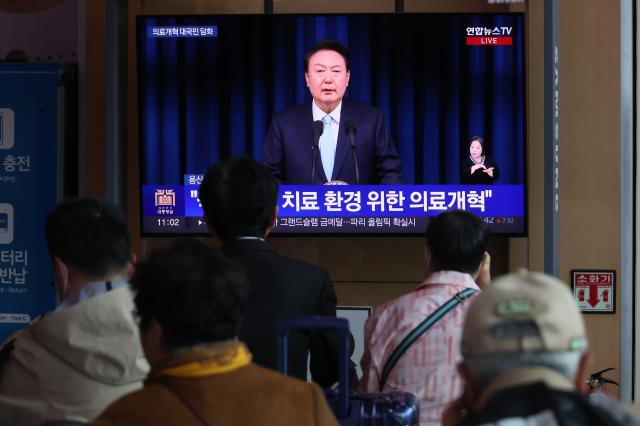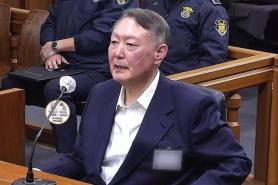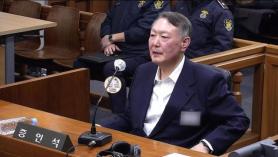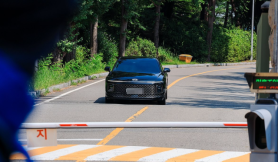
SEOUL, April 01 (AJU PRESS) - Amid prolonged chaos in major hospitals caused by resident doctors' mass resignation movement, South Korean President Yoon Suk Yeol stressed that the government's decision to increase the number of medical school admissions by 2,000 per year is a minimum increase rate to nurture at least 15,000 new doctors by 2035.
In recent years, there has been a decline in the number of trainee doctors applying for essential departments such as internal medicine, surgery, and pediatrics. Instead, there has been a concentration on non-insured treatments, which are relatively lucrative, or fields with lighter workloads like dermatology, ophthalmology, and plastic surgery.
The government's plan to expand the admission capacity of medical school students to around 5,000, from the current 3,000, aims to address the imbalance in the number of applicants to less popular fields and prepare for the surge in demand for medical services expected within a decade due to South Korea's rapidly aging society.
"The government-led healthcare reformation in the medical sector is for the benefit of the people. Tragically, there are cases where patients, engaged in disputes over hospital visits, end up passing away on the streets while circling emergency rooms. When a child falls ill, parents often have to queue up outside hospitals from the early hours of the morning. The situation is even more dire in rural areas," President Yoon said during a live TV broadcast at the Presidential Office, Monday.
Over the past two months, the Korea Medical Association and other medical organizations have argued that as South Korea ages, the demand for healthcare services will gradually decrease, and there will be no need for new doctors. Some doctors expressed concerns that increasing medical admissions could compromise the quality of medical education due to a higher number of students assigned to each medical professor.
However, the president stressed: "Increasing medical school enrollment by 2,000 students is the minimum expansion necessary to fulfill the constitutional duty of protecting the lives and safety of citizens and to respond to the rapidly aging population." Yoon added: "Even with an increase of 2,000 students starting next year, it is insufficient to counteract the rapidly aging society and fulfill the demand for regional healthcare workforces."
Despite the government's plea for resident doctors to return to hospitals and tend to citizens' well-being, some 8,800 trainees refused to do so. The president urged doctors to come back immediately.
"Please return to your workplace as soon as possible. As the president, do you think that I wish to sanction or penalize doctors who can save countless lives and safeguard the health of citizens? You are a vital asset to South Korea. Please do not forget your public duty. Quickly return to the medical field where patients are waiting," Yoon pleaded.
The president's live TV address was broadcast nine days before the general election. Many pollsters predicted that it will not be an easy election for the ruling People's Power Party while the opposing Democratic Minjoo Party is expected to earn more than 150 seats in the parliament.
Meanwhile, the medical sector showed a cold reaction towards the president's speech. Professor Bang Jae-seung, Chairman of the National Emergency Committee of Medical School Professors (JUVI), said in a statement: "The government's discourse confirms its lack of will and capability to resolve the current medical crisis."
Copyright ⓒ Aju Press All rights reserved.




